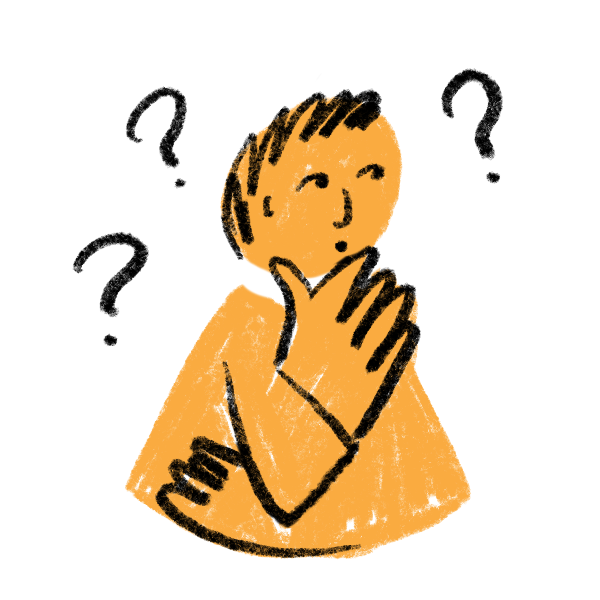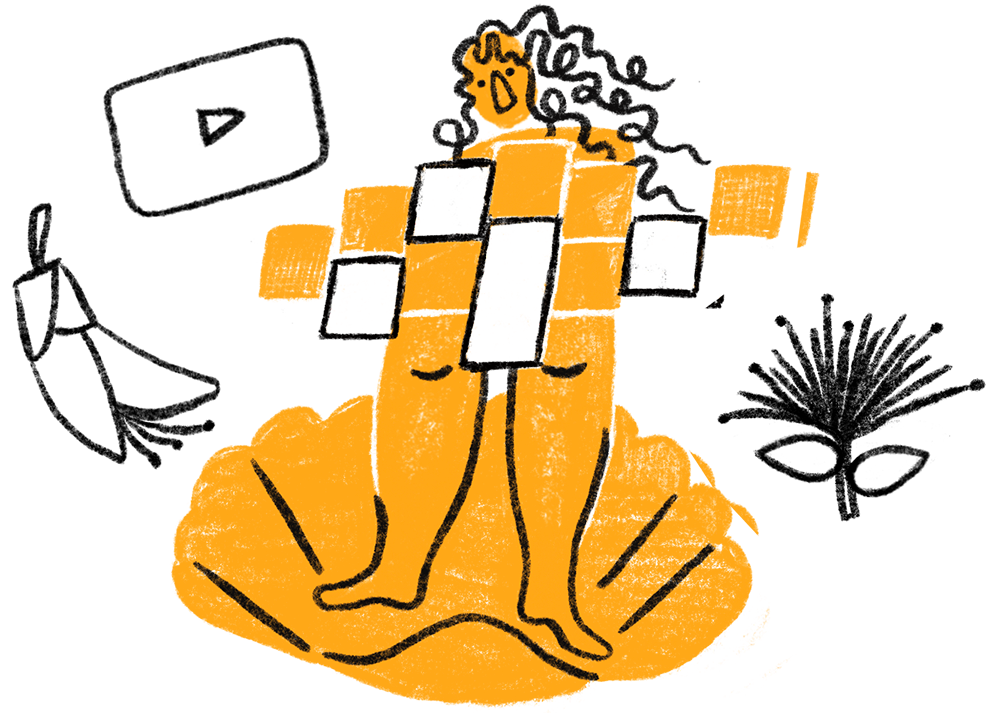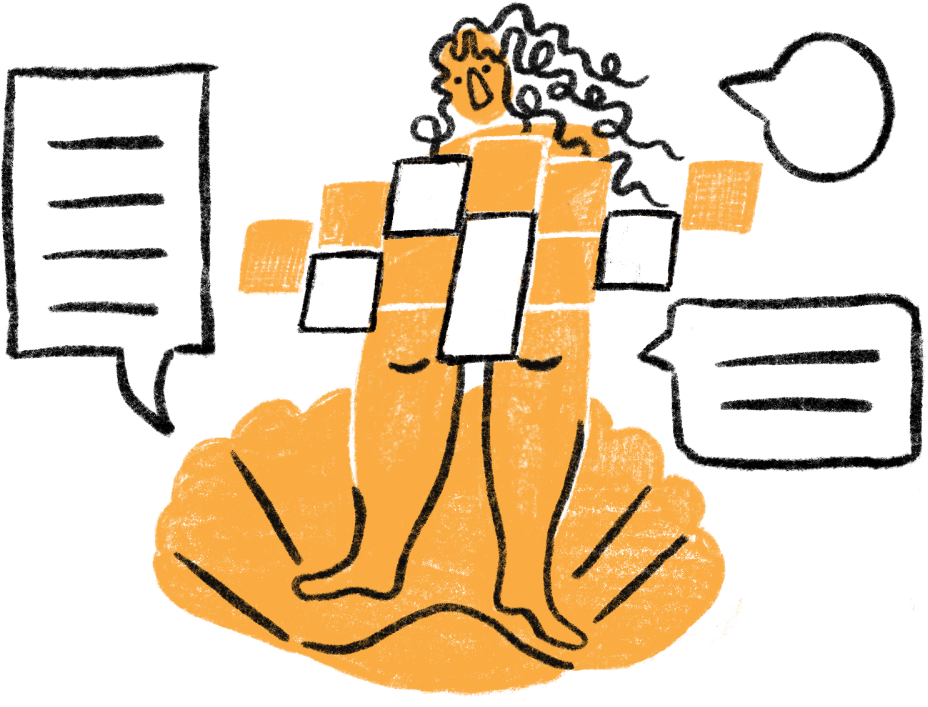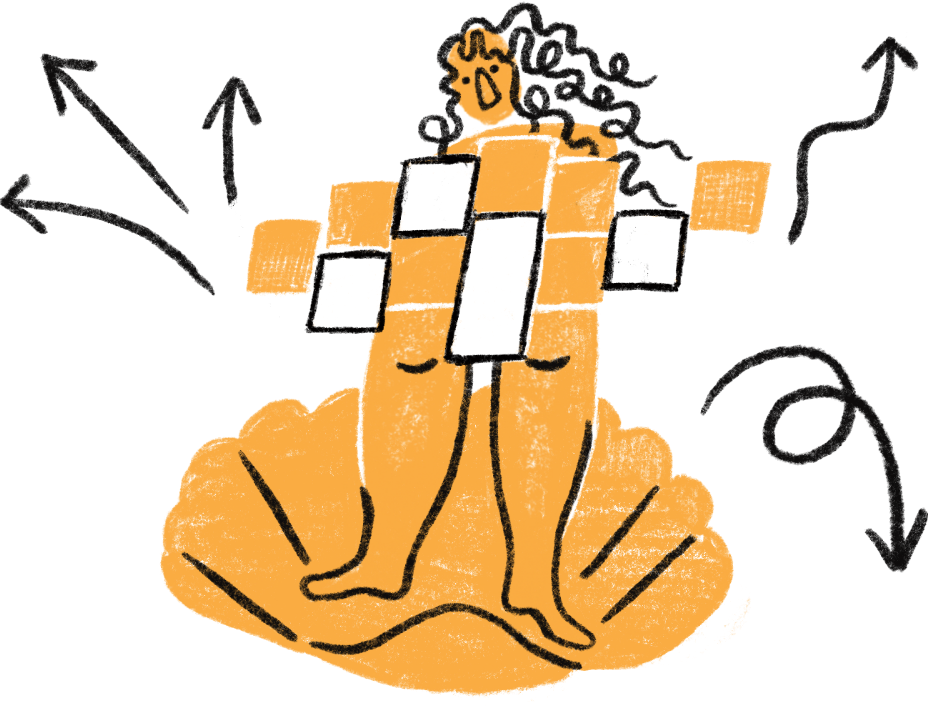The Facts
Pornography is widely available and easily accessible to rangatahi. Check out the stats below to understand its prevalence and the experience of rangatahi in Aotearoa.
Key Statistics
-
67%
of NZ teens have viewed porn
*Te Mana Whakaatu, NZ Classification Office: NZ Youth and Porn Report
-
72%
of young viewers saw things in porn that made them feel uncomfortable
*Te Mana Whakaatu, NZ Classification Office: NZ Youth and Porn Report
-
69%
of regular viewers have seen violence or aggression, and 72% have seen non-consensual activity in pornography
*Te Mana Whakaatu, NZ Classification Office: NZ Youth and Porn Report
-
73%
of regular teen viewers use porn as a learning tool.
*Te Mana Whakaatu, NZ Classification Office: NZ Youth and Porn Report
Porn Explained
Discover the impacts pornography can have on our rangatahi and their relationships. During our deep dive into the topic, we'll explore strategies to reduce harm and promote a positive understanding of sex and relationships.
I used to watch a lot of porn, to be honest. I started watching porn when I was like 11… I think it really destroyed my brain and I feel incredibly devastated that I was exposed to so much porn

Viewing Violent Content
What it is
It's not uncommon for porn to depict a level of violence and aggression. This may include slapping, smacking, hitting, strangulation, restraining and gagging. While this content is sometimes shown as consensual or arousing, it can normalise assault and harm.
Possible Drivers
- Easy access to content
- Curiosity and exploration
- Peer influence
- Influence of social media and wider culture
- Possible viewing to process emotions or experiences
The Impact
Because violent behaviour is often depicted as consensual or arousing in pornography, rangatahi can easily feel like sexual violence or misogyny is normal or expected, and emulate it in sexual activity.
Objectionable Material
What It Is
Objectionable material is illegal and banned in NZ due to the sexual content likely being 'injurious to public good'. This content is usually extreme and can include sexual depictions of minors, extreme violence or degrading/cruel acts towards people or animals.
Possible Drivers
- Exposure or access to content
- Curiosity and exploration
- Lack of access to quality relationships, care, protection, or adult guidance
- Possible processing of emotions or experiences
The Impact
Being exposed to objectionable material can impact the viewer's wellbeing and the safety of others (someone is harmed in the creation of objectionable material and continues to be harmed through its availability). Having, creating or sharing Objectionable material carries significant legal consequences.
Habitual Porn Use
What It Is
Arousal and pleasure from viewing porn may provide rangatahi relief from feelings of stress, anxiety, and loneliness and be used to regulate low mood. This can reinforce the use of pornography as an escape, coping mechanism, reward or distraction and can become habitual.
Possible Drivers
- Easy access to content
- Relief from low mood and stress
- Compulsion
- Lack of alternative coping skills
- Difficulty with social skills
The Impact
Using pornography as a coping mechanism may impact on social development or lead to public or school viewing. The habitual use of pornography can also desensitise rangatahi to harmful behaviours and violence, foster victim-blaming, reduce sexual responses, and foster unhelpful relationship narratives.
Porn for Education
What It Is
In the absence of educational voices about sex and relationships, rangatahi may view pornography as a way to learn.
Possible Drivers
- Peer pressure to know about sex
- Curiosity and exploration
- Lack of access to quality relationships and adult guidance
- Not yet developed critical consumption skills
The Impact
Relying on pornographic content for education runs the risk of misunderstanding pleasure, mutuality and consent, intimacy, communication, real bodies, aggression, dominance and control. It can also set unrealistic expectations for relationships, rangatahi to engage in harmful behaviour.
Acting Out
What it is
Rangatahi may want to emulate the sexual behaviour they have seen in pornography. This may include violence, pornified language, objectification, misogyny, and by-passing consent.
Possible Drivers
- Curiosity and exploration
- Peer pressure
- Influence of social media
- Processing experiences or emotions
The Impact
Rangatahi acting out what they have seen in porn can lead to concerning or harmful sexual behaviour (potentially illegal), issues in their relationships with loved ones or peers, difficulties with consent and more generally a normalisation of harm.
Porn Viewing at School
What It Is
Rangatahi may access porn at school on their own devices or by using school technology. This can happen in private spaces (like bathrooms), or even during class.
Possible Drivers
- Easy access to devices
- Easy access to content
- Curiosity and exploration
- Wanting to be 'in the know'
- Peer pressure or influence
The Impact
The use of porn in a school setting can interfere with learning and regular social interactions. Rangatahi can experience feelings of shame, guilt, confusion and anxiety after watching. School discipline and consequences may also affect their educational journey.
Go Further
Looking to dive deeper into the topic of rangatahi and pornography? Here is a short list of recommended resources which can help bridge any knowledge gaps and offer tips on this theme.
-
The Light Project
The Light Project is an excellent New Zealand-based resource which provides tools for professionals, whānau, and rangatahi about all things pornography.
-
In the Know
A hub for information, help and tips on online sexual issues, including those coming from porn.
-
How to Talk with Rangatahi about Pornography?
The NZ Classification Office shares information on how to tackle chats about pornography with rangatahi
-
It's Time We Talked - Breathless
Pornography can significantly influence rangatahi sexual behaviour, including normalising harmful practices like sexual strangulation. Campaigns like "Breathless" by 'It's Time We Talked' address this, promoting safer relationships and critical thinking about porn's impact.
Prepare
Before deciding whether a behaviour is age-typical, concerning or harmful, you'll need to ask yourself and rangatahi important questions. Use the following prompts to prepare for a meaningful kōrero.

Build Context
Consider who was involved, where it took place and when. Are there any safety risks or policy violations? What was the intent behind the action? Were there any external influences involved? Building context can help you understand and respond to the sexualised behaviour while ensuring you meet everyone's needs
Neurodiversity
Some of our rangatahi are neurodiverse. This means they process information, regulate emotions and respond to situations in different ways. Take some time to consider this when identifying concerning or harmful sexual behaviour. It may also be worth considering these unique learning patterns when looking at responding and moving forward.
Identity and Cultural Considerations
Our diverse Kiwi communities are represented by many different cultures, identities and belief systems. Our goal is to engage with rangatahi using meaningful responses while upholding the mana of all individuals. You may need to adapt communication styles and language to align with cultural norms and support their values, identities, and beliefs. It's also important to note that some rangatahi may be negatively affected by the portrayal of sexually, ethnically, culturally or gender diverse groups in pornographic content.
Trauma Informed Responses
Do consider the possibility of rangatahi being exposed to porn or having experienced trauma, and how this might have influenced their decisions. These experiences do not excuse any concerning or harmful behaviour but may help inform and explain it.
Recognise
To understand and recognise sexualised behaviour, we use a traffic light system which ranges from GREEN behaviours (age-typical), to ORANGE (concerning), and RED (harmful). The level of intervention will depend on the context, the behaviour and its impact on rangatahi and others, as represented by the colour.
Reminder: no matter where the behaviour sits on the traffic light system, it should be considered without judgement.

Green
- Accidental viewing online
- Exposure from same-age peers
- Searching for porn to fulfil curiosity, but able to seek adult support after viewing

Orange
- Escalating or evolving viewing of porn content
- Poorly managed or late-night viewing, leading to negative impacts on social and academic wellbeing
- Inappropriate viewing in front of younger peers or family members
- Public or school viewing
- Sending or sharing porn/bombing peers
- Physical harm from imitating porn actions or excessive masturbation

Red
- Engaging in non-consensual sex influenced by porn scripts
- Endangering others through high-risk porn-informed behaviours (for instance, choking/strangulation) with or without consent
- Producing porn while under 18
- Sharing porn for sexual purposes with individuals under 18 and with potential age, power, or cognitive imbalance such as younger siblings
- Collecting and storing objectionable material - Viewing or sharing objectionable material (illegal for all ages)
- Coercing or pressuring others into sexual acts or financial exploitation using porn
*If any of the behaviours are against the law or organisational policies, are of concern to others, place a rangatahi (or others) at risk or are life-threatening; you, as a safe adult with information, have a duty of care to take action. Contact STOP, WellSTOP, SAFE Network and/or seek advice from Oranga Tamariki or Police. More information on making contact in our Respond section.
Escalating your Assessment
Sometimes behaviours can move from Green to Orange, or from Orange to Red. This depends on context, intent, impact, and power dynamics between individuals. These questions should help you understand when the situation needs escalating.

Has Rangatahi Engaged with Pornography Before?
If this is repeated behaviour or the young person has not responded to past correction, this is a sign you may need to escalate.
Is this Behaviour Age-expected Among Peers?
Ask yourself what the expected knowledge and experience of pornography for their age may be. If the situation does not match their expected development or social norms, it may need to be escalated.
Was there Mutual Consent?
It's important to understand whether all rangatahi involved in viewing the pornography were consensually doing so. Pornography being shared or viewed without consent is cause for escalation.
Did the Behaviour Cause Distress?
Was any individual in this situation significantly impacted, injured or distressed by the viewing of the pornography? If other individuals were harmed (for instance, violent behaviour or masturbation injury), consider escalating this situation.
If Others were Involved, was There an Imbalance of Power?
Imbalance of power can involve age, development, authority, and intellectual or physical difference. It can be helpful to consider the dynamics between those involved.
Example Assessment
These examples outline break down a scenario to help you pin-point when behaviours cross from green to orange or red territory.
Porn as an Educator
Toby is a 13-year-old who loves gaming, rugby and hanging with his mates. He has been hearing about sexual stuff, including porn, from his friend group. This sometimes makes him feel self-conscious, because he hasn't engaged with sex or pornography before. He wonders if he will ever understand what they are talking about...

While looking for gaming cheat codes online, an ad for porn appears on his browser.

Out of curiosity, Toby clicks on the link which opens up R18 porn content.

He is surprised at what he sees and anxious about getting caught. He doesn't want to lose his computer privileges.

Toby wants to search for more porn, feeling relieved he knows what everyone is talking about.

The next day, he searches for more porn and downloads a few videos, eager to show his friends.

After practice in the changing rooms, Toby plays the videos in front of his friends.

Just as the coach walks in, one of his mates yells out: "Toby's got porn!".
Assessing the harm
This would be considered an ORANGE scenario. Toby's motivation was to fit in with his friends, not to cause sexual harm. However, the non-consensual sharing of R18 content with underage viewers in a shared space is concerning and Toby would benefit from safe adult guidance and a conversation about pornography use.
Staying Safe
Safety is a priority when discussing sexualised behaviour. This can mean addressing any urgent safety concerns, but also creating an environment where rangatahi feel supported. In this section, we describe what safety means, now and later, for each party.

Rangatahi
Creating a safe space for open communication is crucial for rangatahi to feel comfortable discussing their behaviour, feelings or concerns. By responding in a thoughtful manner, you can establish a foundation of trust while promoting their healthy wellbeing.
Now
- Have a CALM, non-judgemental attitude throughout
- Avoid discussing the concern in front of others where possible
- Make active listening your best friend
- Avoid jargon or technical language
- Be sensitive to their cultural background
- Communicate the limits of confidentiality so they're not blindsided
- Remember to ask for consent before talking about sensitive topics
- Respect the boundaries of rangatahi
- Recognise when the situation needs to escalate to another professional
Later
- Seek permission / inform before involving their whānau, where possible
- Check for any well-being concerns that might result from informing their whānau
- Keep to the agreed confidentiality, where possible
- Clarify boundaries before communicating with other parties
- After discussing any behaviour, refrain from referring to it casually
- If needed, make a clear time to follow up and discuss
Those Impacted
Addressing safety for those impacted by sexualised behaviour is crucial to their wellbeing. Here are some tips on how to approach it.
Now
- If someone is in immediate danger, prioritise their safety
- Establish a safe and non-judgmental space
- Show belief in the person's story and validate their experiences
- Empower them to make choices for their own wellbeing
- Ensure those impacted know choosing their safety over any potential shame is important
- Adhere to professional codes of conduct and ethical guidelines
- Facilitate bringing in support or assistance
Later
- Explain it is common to feel impacts belatedly
- Normalise help-seeking, even down the line
- Provide cues for when to seek help (e.g. loss of sleep, loss of appetite, anxiety, avoidance, persistent fatigue, flashbacks, nightmares...)
- Reiterate safety and wellbeing come above shame
- Reassure about speaking up, at any point
Myself
When talking about pornography or sexualised behaviour, it's important to take care of yourself too. Here are some tips to keep yourself safe during these conversations:
Now
- Set your own boundaries before conversations
- Keep yourself updated on the latest best practices
- Check your biases and stay open-minded
- Avoid doing your own research into pornographic material
- Remember to care for yourself too
- Know when to escalate to someone else
- Call STOP/WellStop/SAFE Network if you need more advice
Later
- Keep up with supervision to ensure you are supported
- Press pause yourself. Take breaks by doing things you love
- Be aware of your own triggers and experiences
- Reach out for a chat with a trusted colleague or supervisor (encouraging privacy)
- Call STOP/WellStop/SAFE Network if you need more advice
Whānau
Though they might not be directly involved, the young person's whānau will often experience a range of emotions when faced with sexualised behaviour. Good communication and education is the best way to hold the mana and safety of all involved.
Now
- Ensure all family members are safe
- Encourage open and honest communication within the family
- Foster an atmosphere of trust and non-judgement
- Establish clear boundaries with the whānau
- Reinforce the importance of respect and consent
- Consider if siblings may be needing support with pornography
- Seek professional support if it feels too heavy
Later
- Promote education and awareness about mutual and healthy relationships, consent, and boundaries with whānau
- Offer support for affected whānau members
- Encourage self-care practices for each whānau member
- Respect the confidentiality and privacy of all whānau members involved
Talk About It
Talking is a critical step in reflecting and moving forward. Take time to listen to the young person's perspective and give them the opportunity to think critically about their behaviour and next steps.
"I have a lot of faith in my friends and my generation... so I think if there was some education or some culture shift that people started talking about [porn], I think there would be a real change in how people treat each other."
Conversation Starters
-
It's pretty common for rangatahi to view porn, but it can sometimes be confusing - wanna talk about it?
-
It takes a lot of courage to discuss these things. I'm here to listen
-
Porn has some tricky messages that sometimes need unpacking - need a sounding board?
-
I'm keen to understand your perspective. When did this viewing become difficult to manage?
-
Can you share what's been going on lately? We might be able to find a good way forward
-
Porn seems to be a big topic in your peer group. Do you feel this is a problem for you?
-
Do you think your viewing crossed any boundaries here? At which point do you think it might have crossed a line?
-
Some people say that the sex talk should include a chat about pornography. Do you agree?
Conversation Themes
Inviting Conversation
Use these strategies, tips and prompts to invite kōrero with rangatahi. This section isn't about investigating the issue too deeply, but rather inviting rangatahi to open a dialogue with you.

PACE
Playfulness - Acceptance - Curiosity - Empathy
- If appropriate, use your relationship with rangatahi to engage in a way that is 'Playful' and relaxed.
- Demonstrate 'Acceptance' by engaging non-judgmentally with rangatahi.
- Have 'Curiosity' by enquiring and encouraging self-reflection.
- Be 'Empathetic', considering the experience and perspective of rangatahi.
Naive Enquiry
Naive enquiry uses open-ended and non-judgmental questions that don't assume any prior knowledge or information. These are designed to understand rangatahi better without overwhelming them:
- I'm curious...
- I'm wondering...
- I'm interested in hearing...
- Tell me about...
- Help me to understand...
The C's of Responding
- Be CALM, no matter what you learn.
- CONNECT with the rangatahi opposite you.
- Be CURIOUS with open-ended and non-confrontational questions
- Have COMPASSION and remember growing up is challenging.
- Consider CONTEXT to ensure you have all the needed information.
- COACH rangatahi to help them find healthy paths towards green behaviours.
Call it Out
Sometimes, simply naming what you see and plainly expressing concern is enough to start a good kōrero e.g.:
- Viewing porn might feel good to you, but others may find it really distressing. It's not ok to send porn around your peers.
- There are age restrictions and laws about sharing pornography. Breaking these laws can lead to serious consequences.
- You've been viewing a lot of porn at school. It's not the right time or place.
- I can see your porn viewing is impacting your overall well-being. Let's look at making better choices to keep you safe.
- Porn is a poor educator for real-life relationships. There are healthier resources to learn about sex and relationships.
Inviting Reflection
Use these prompts to dive deeper. This is a good time to build on the topics that came up during Inviting Conversation.
Attitudes and Beliefs
- What is important to you in intimate relationships? How does watching porn fit with this?
- How do you handle seeing things in porn that make you feel uncomfortable or confused?
- How do you think porn influences your attitudes towards sex and relationships?
- Have you ever discussed pornography with your mates? What are their views on it?
- Where else could you find out about mutually healthy sex and relationships?
- Does porn portray diverse or vulnerable groups positively or negatively? What do you think about this?
Exploring Consent
- How would you describe consent?
- How well does pornography emphasise mutual care and enjoyment?
- What roles do you think communication and consent should play in relationships?
- How do you think pornography reflects mutual consent and communication in relationships?
- How can you ensure communication and consent are part of your relationships?
- How do you think porn influences your understanding of consent?
- What responsibility does the pornography industry have to accurately portray consent on screen?
Fantasy vs Reality
- What do you think is missing from porn that helps in real-life relationships?
- How is porn different from real-life sex?
- Do you think porn scenarios reflect real life? What strikes you as real or unreal?
- Porn actors often have specific body types. How might this affect people's body image and self-esteem?
- What do you think about the fact porn actors are often injured as a result of the sex acts in porn?
- What do you think about watching others have sex? How Is it different because it is on screen?
The Sociocultural Influence of Porn
- Porn is intended for adults. Why do you think these restrictions exist?
- What are the possible risks for rangatahi watching porn?
- What messages do you think porn gives about boundaries and consent?
- How might porn impact the way rangatahi treat each other in relationships?
- How might watching a lot of porn affect real-life relationships and sexual responses?
- How do you think pornography messages might impact people differently (age, gender, sexual orientation, race, ability, religion)?
Trust
- What does trust in a relationship look and feel like to you?
- What are the essential components of trust in a relationship? How might using porn affect trust in a relationship?
- How does your porn use affect others trusting you?
- How do you think the messages in porn promote safety and trust?
Please check ethical boundaries and professional body codes before asking any questions. Consider if someone else would be better suited to have these conversations.
Inviting Change
Use these prompts to explore opportunities for change. This is a good time to collaboratively explore how to move forward from the issue.
Dreams and Aspirations
- What would you like to be known and liked for?
- What do you think others want to be known and liked for?
- What kind of relationships would you like for the future?
- Are you proud of who you are becoming?
- Does porn fit with your hopes and dreams for the future?
Personal Ethics
- Beyond sexual gratification, why else might you be viewing porn?
- Are there more positive, less harmful ways of approaching these issues?
- A side effect of porn use can be isolation. How can you reduce this risk?
- What things are you missing out on or sacrificing because of porn?
- Do you have ideas about why objectionable material is illegal or banned?
- If you continue to use porn, how can you ensure you and others aren't harmed?
Personal Responsibility
- What would people say about you if asked?
- Do you have positive role models and influences to help you make good choices moving forward?
- What do you need to do to keep yourself and others safe going forward?
- How can you uphold your own and others' mana?
- Urges to watch porn aren't permanent. If you practice self-restraint (delay, distract, do something else) the urge will fade over time and lessen.
Accountability
- What happens if you don't take action or put things right?
- Are you ready to accept responsibility?
- Is there anything you could apologise for?
- How do you think you can take responsibility, and turn things around?
- How can this help you grow your values?
- Do you need support doing this?
Please check ethical boudaries and professional body codes before asking any questions. Consider if someone else would be better suited to have these conversations.
Moving Forward
Change is possible when rangatahi receive the right support and strategies. Allowing them to learn, acquire new skills and embrace healthier behaviours is key in empowering them to move forward.

Accountability
At times, rangatahi need to be held accountable to responsible adults, particularly if behaviour has been repeated.
Short Term
- Rangatahi should have their web history available for transparency and/or supervision
- Free access to devices could be restricted for a time
- Review or revisit device contracts
- Where appropriate, encourage and support rangatahi to apologise and repair the situation
Longer Term
- Ongoing digital safety education and monitoring may be put in place
- Devices may be monitored by whānau at home
- Engage in open and direct communication with school and home.
- Set clear boundaries and expectations so everyone is on the same page
Education
When rangatahi have more understanding and knowledge, they are better informed to make good choices.
Short Term
- Encourage education on digital literacy and responsibility, consent, social skills and healthy relationships
- Ensure awareness of the legal implications related to sharing and creating porn, and viewing objectionable material
- Promote an understanding of their impact on others, their reputation and future, their well-being and relationships
Longer Term
- Encourage the rangatahi's education on healthy relationships, mutuality and consent, the law and legal consequences
- Introduce the Harmful Digital Communication Act (2015), as well as the Films, Videos and Publications Classification Act (1993)
Critical Consumption
If rangatahi can think critically about some of the messages and impacts of pornography, they will be in a better position to make informed decisions about watching or not.
Short Term
- Start a conversation on what themes within pornography may be unrealistic in real life
- Encourage awareness of harmful messages or themes present in pornography (for instance, the pairing of sex and violence, or the mistreatment of vulnerable people or identity groups)
- Practise recognising motivations and intent of viewing
- Encourage honest reflection on the impact porn viewing has on their daily lives and relationships
- Explore their thoughts on whether porn is safe and legal for everyone involved in the making of it
- Recognise curiosity and desire to watch is usually temporary - delay, distract, do something else.
Longer Term
- Encourage awareness of more subtle impactful themes (for instance, sex being a performance, sex not being about mutual enjoyment)
- Work towards a goal of reduced or zero pornography
- Long term awareness of the ethics of porn creation and use
Positive Role Models & Influences
Moving forward can be supported through encouraging rangatahi to seek out positive role models and influences.
Short Term
- Identify positive role models and influences to emulate. These people can be from personal spheres, social media or live in the wider community
- Recognise and identify the benefits of following positive influences
- Examine the rangatahi's personal ethics and align them to mana-enhancing practices
- Scrutinise pornography culture and identify beliefs that can cause harm
- Encourage working towards becoming someone they are proud of
- Provide positive reinforcement
Longer Term
- Communicate your high hopes for the rangatahi
- Provoke a desire to strive towards expectations
- Create a goal for the rangatahi where they become an ambassador of their own learning and influence their own peer group
Communication & Support from Whānau
Being quick to inform and communicate clearly with whānau and carers is critical to ensuring ongoing safety and healthy change.
Short Term
- Inform the whānau and carers early and frequently keep them up to date
- Use clear and factual language to explain the behaviour
- Explain the rationale for each action and consequence
- Involve the whānau in problem-solving
- Develop a clear, time-bound plan with the whānau and carers that they feel comfortable supporting and following through
- Document your findings
Longer Term
- Check-in and address any concerns as soon as they arise
- Make yourself or someone suitable available to follow up with whānau and carers whenever needed
- Be open and supportive, encouraging the whānau and acknowledging their efforts and successes
- Offer counseling, pastoral care, kaumatua where available
Personal Growth
Encouraging rangatahi to have a more informed view of porn and how it impacts them is key to moving forward.
Short Term
- Explore the idea that the curiosity doesn't last forever. Delaying or doing something else can help.
- Encourage making critical choices on porn viewing for yourself, friends, relationships and whānau.
- Work towards being fully informed of the impact of choices on yourself and others (whether on personal health, wellbeing, whānau, thoughts or feelings)
Longer Term
- Continue reflecting on the intent and reasoning around porn viewing.
- Practice making choices around porn and aspiring to be someone you want to be.
- Consciously develop the lens to see how porn shapes our culture and impact people's lives.
Involving Others
At times, sexual behaviours may warrant you involving the rangatahi's close ones or appropriate professionals. Read more on when to reach them and how.

When
- Any orange or red behaviour around pornography has been reported
- Rangatahi has not responded to correction
- You are concerned about the impact their behaviour could have on others
How
- Inform the rangatahi prior to contacting whānau/carers
- Prioritise safety for the rangatahi first
- Call whānau/carers and invite them in for a face-to-face conversation as soon as possible
- Follow-up and check-in using the whānau/carer's preferred method
- Also contact parents of other rangatahi who may have been exposed to the pornography, and apply the above
When
- When someone has been impacted by orange or red behaviour
- To offer support and recognise a boundary has been crossed
- To discuss referral to services, counselling or offer of pastoral care
- To hear their perspective on an incident
- To seek their input into the process for restoration / apology / reporting
How
- If the young person is willing to engage
- Communicate with care, giving rangatahi options when possible
- Reiterate their safety is a priority and acknowledge that shame, fear and other emotions may be present
- Reinforce their agency and ability to make choices if they do or do not want to act
When
- There is rationale for informing teachers (for instance, the person impacted is in their class)
- There are practical considerations (for instance, when pornography has been viewed at school or restrictions are in place around the access to platforms)
How
- Communicate with discretion while upholding the privacy of all involved
- Remember to abide by school and organisational policies/procedures
When
- Communicate with discretion while upholding the privacy of all involved
- Remember to abide by school and organisational policies/procedures
How
- Find the best people to speak to depending on age, context and the need for expertise
- Inform whānau/carers of the concerning behaviour being targeted and context
- Communicate with discretion while upholding the privacy of all involved, where possible
When
- Behaviour is recognised as red, call STOP for a phone consult
- When objectionable material has been viewed
- When pornography has been created by rangatahi under 18 years old
- When pornography scripts have been acted out
- The behaviour is orange and has potential to impact the ability for rangatahi to attend school
- There are historic concerns regarding the young person's sexual behaviour
How
Call STOP (WellSTOP or SAFE Network) at 03 353 0257
When
- A red behaviour has occured and advice is needed from Police or Police Youth Aid about the law
- An impacted person wants to lay a complaint
- Laws have been broken or a criminal offence is evident
- Educational level input is warranted (via School Community Officer) for persistent orange behaviours
- When your Child Protection Policies indicate contacting the Police is needed
How
- Call your local Police Station - Call your Child Protection Team or Lead Police Contact (Schools)
- For emergencies, dial 111
What if... ?
These kōrero with rangatahi can sometimes be confronting and trigger a variety of reactions. This is completely normal. Here are some tips to navigate some of the trickier responses you might come across.

- Stay calm yourself
- Ensure your immediate safety and theirs
- Acknowledge their anger
- Explore where their anger might be coming from
- Offer understanding
- Search for solutions
- Offer to take a break
- Use information carefully and factually
- Create understanding that there are different stories
- Give them the opportunity to share their perspective
- Find the points of agreement
- Explore the points of disagreement
- Ensure that blame is not at the centre of the conversation - focus on resolving the problem
- Reassure their behaviour doesn't define them and can be worked through
- Anticipate this by noticing signs of disagreement or distress
- Stay calm and co-regulate
- Offer to have a break, walk, drink, and resume later
- Be empathetic of their state of mind and ability to engage
- Remind them how useful collaboration can be
- Encourage resolution and ensure safety
- Prepare for various responses before sharing information
- Create a safe and calm environment for discussion
- Use factual, non-judgemental language - communicate plainly
- Show empathy and kindness for all individuals
- Acknowledge strong feelings and the difficulty of these conversations
- Offer breaks if the conversation becomes too overwhelming
- Prioritise safety for all individuals
- Follow procedures if the situation escalates
- First, check your values and biases: are you open to different perspectives?
- Ask the rangatahi to evaluate their behaviour from different settings - whānau, peer group, their culture
- Consider values set by the law, their school, beliefs, community etc as a reference
- Recognise the young person's development stage. Values can evolve with time and experience
- Be positive for their growth and hold hope for their future
- Listen and validate their experience
- Support their agency by asking their preference on how to move forward
- Support them in getting help, offer options and follow through
- Acknowledge their difficulties
- Ensure immediate safety for all individuals
- Separate their disclosure from their concerning / harmful actions
- Listen, empathise and validate their feelings
- Have compassion
- Acknowledge how these feelings might be impacting them
- Help them regulate and get calm (break, breathe, walk and talk, peer support)
- Reassure them that all things can be worked through and faced together
- Offer to be a support or help source support
- Identify some personal strengths or characteristics and emphasize them to show rangatahi they have the tools they need to move forward
- Promote self-compassion and the importance of giving themselves time and space


